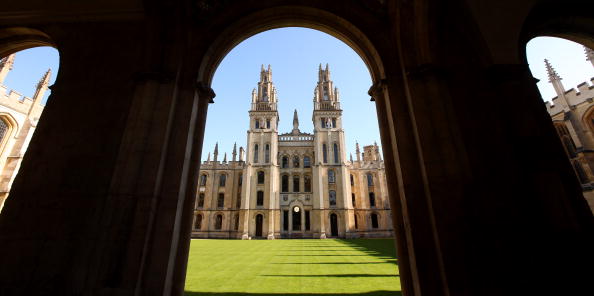Statistics on universities' employability rates mean little. What matters is your background
If your parents are professionals and you're surrounded by professionals, you're more likely to become one. But university doesn't just exist to get people jobs

Your support helps us to tell the story
From reproductive rights to climate change to Big Tech, The Independent is on the ground when the story is developing. Whether it's investigating the financials of Elon Musk's pro-Trump PAC or producing our latest documentary, 'The A Word', which shines a light on the American women fighting for reproductive rights, we know how important it is to parse out the facts from the messaging.
At such a critical moment in US history, we need reporters on the ground. Your donation allows us to keep sending journalists to speak to both sides of the story.
The Independent is trusted by Americans across the entire political spectrum. And unlike many other quality news outlets, we choose not to lock Americans out of our reporting and analysis with paywalls. We believe quality journalism should be available to everyone, paid for by those who can afford it.
Your support makes all the difference.A couple of years ago I was invited to the University of East London (UEL) to give a talk to the students about the new wave of activist movements – UK Uncut and student protests – that had burst out around the country.
Young, diverse and mostly living in Tower Hamlets, these were working class students I was addressing, many of whom were the first in their families to go to university. They lacked the officious rhetoric of the students at more establishment institutions, but they were sharp, observant and uncompromising. I left the session feeling it was I who had been the one to learn something.
It was disappointing, then, to read that a study ranking universities in order of employability placed UEL bottom, as 45 per cent were not considered to be in a “professional job” six months after graduating. “With tuition fees at £9,000 a year, young people risk wasting their money,” Professor Alan Smithers of the University of Buckingham warned – the implication being that there’s no point in going to UEL at all if you’re not going to get a decent job out of it.
That’s not how it felt to me, surrounded by passionate young people who had something to say, and tutors who cared sincerely about the kind of adults these students were becoming. For many – and especially, no doubt, the 47 per cent from working class backgrounds – the university provided space away from family pressures to think critically about life, and their own hopes and dreams.
Studies like these ignore the fact that a significant number of students at newer universities come from socially disadvantaged backgrounds, and the very fact of taking part in higher education will reduce these disadvantages, even if their alumni don’t end up as professors of philosophy within six months of graduating.
In 2010, the University of Oxford enrolled just 11.5 per cent of its students from working class backgrounds; it is ranked within the top three universities whose alumni secure professional jobs within six months of leaving. You can see where I’m going with this: statistics around employability obfuscate the fact that it’s much easier to get a professional job if your parents are professionals, everyone you know is a professional, and your university has connections with some of the most distinguished organisations in the country.
I know a lot of Oxbridge alumni, and I can’t say I’ve noticed a significant difference in intelligence between them and the students at UEL. Rather, Oxbridge graduates have been trained to use that intelligence in professionally approved ways that transport them seamlessly into the establishment.
It’s important to measure the quality of universities, but here one-dimensional metrics are used in judgment on the calibre of graduates rather than the university itself. Is it fair that a student from UEL might be stigmatised and an Oxford graduate feted simply because of the name of the institution on their degree certificate?
The purpose of education should be to develop and nurture a human being. The great tragedy of tuition fees is the way it has transformed how we view higher education as something to be bought rather than a public good in and of itself. Nowhere is that more obvious than in these ultimately meaningless yet degrading rankings.
Join our commenting forum
Join thought-provoking conversations, follow other Independent readers and see their replies
Comments